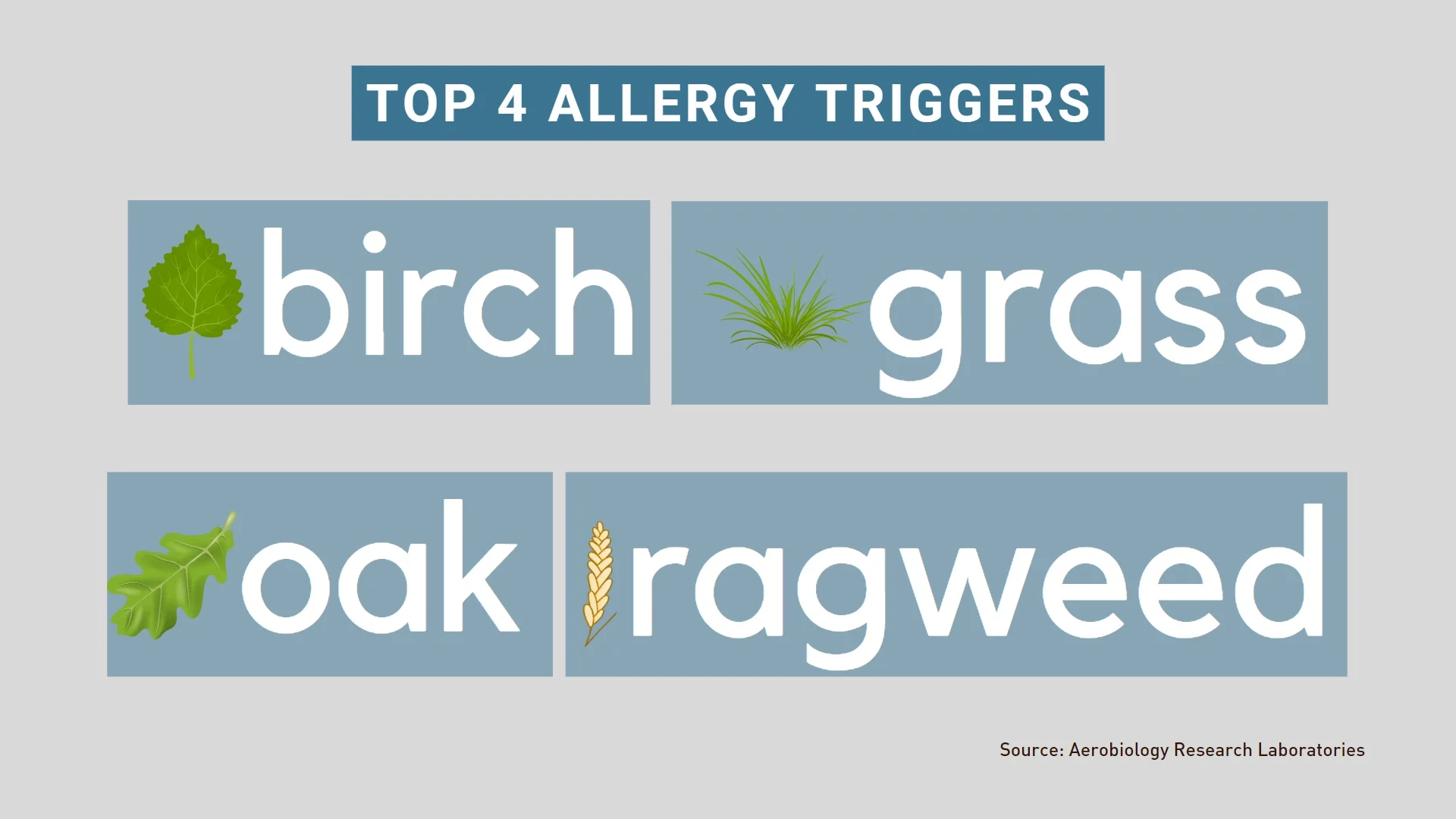
These allergy triggers could be sabotaging your health
Many people don't know that certain lifestyle habits could be making their allergies worse.
As temperatures and pollen levels start to rise [across the northern hemisphere], it's important to be aware of the habits that can aggravate allergy and hay fever symptoms.
RELATED: Is it a cold, flu or hay fever? How to tell symptoms apart this winter
Superdrug Pharmacy Superintendent Niamh McMillan discusses five overlooked allergy triggers and the expert-approved solutions you need to protect yourself.
Food allergies
Certain foods can trigger allergy-like symptoms, especially when they are processed.
"Many processed foods contain hidden allergens, from dairy derivatives to artificial preservatives, which can trigger reactions in sensitive individuals," Niamh explains. "Even those without a diagnosed allergy may experience symptoms like bloating, skin flare-ups, or sinus congestion due to intolerance."
SEE ALSO: A simple diet swap may save you during allergy season, here's how
She adds that keeping track of what you eat and eliminating certain foods can help to identify what is causing the symptoms.
WATCH: Help your seasonal allergies simply by avoiding these foods
Alcohol
Alcoholic drinks such as red wine and beer contain histamines and sulphites, which are known to "exacerbate allergy symptoms".
"Many people experience nasal congestion, headaches, or skin flushing after drinking alcohol, mistaking it for a hangover when it could be an intolerance," the expert says, before recommending Superdrug's saline nasal spray to relieve congestion.
SEE ALSO: Why alcohol and a swim in cold water on a hot day can be a fatal mix
WATCH: The best pets for people with allergies
Stress
Chronic stress can weaken the immune system and increase histamine levels, so try to manage your stress by exercising regularly, prioritizing sleep and eating well.
"Studies suggest that stress doesn't cause allergies, but it can make existing symptoms worse, leading to prolonged discomfort," Niamh adds.
Sleep deprivation
Aim for at least eight hours of sleep every night to keep allergic reactions to a minimum.
"A lack of sleep can make the body more reactive to allergens, exacerbating symptoms like sneezing, itchy eyes, and congestion," the pharmacist states, noting that a lack of sleep can also increase inflammation, which will worsen the symptoms.

Some known allergy triggers in Canada (Canva/The Weather Network)
Exercise
If you suffer from allergies, consider exercising indoors, especially on days with high pollen counts, to avoid worsening your symptoms. Also, shower immediately after workouts to remove allergens from your skin and hair.
"While regular exercise supports a strong immune system, it can also trigger allergy symptoms, especially for those who exercise outdoors," Niamh explains. "Pollen exposure during workouts or reactions to sweat and heat can lead to heightened sensitivity."
WATCH: Poor sleep could be the weather's fault, how to ensure sweet dreams
(Header image: Getty Images/stock photo)